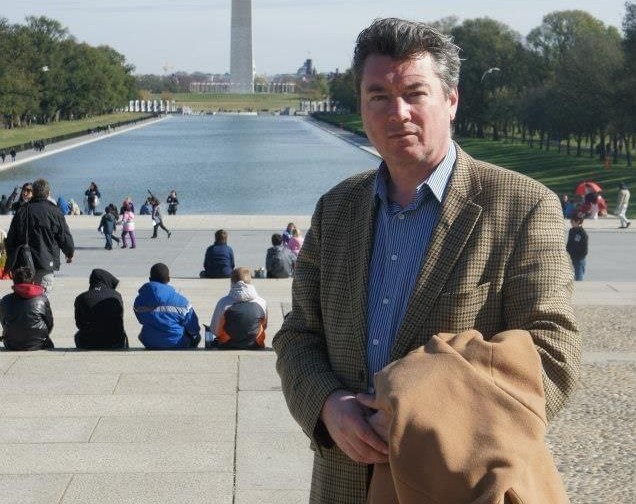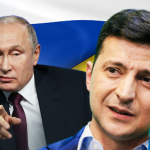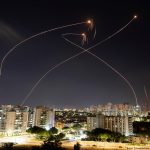“It is rare to see a picture of a Ukrainian soldier who does not appear well-equipped and healthy. It is rare to see a picture of a Russian soldier who looks as well-supplied; indeed we know that some Russian families have had to find the equivalent of $1,000 to buy basic winter clothing for sons mobilised and sent to fight,” wrote General Sir Richard Barrons co-chairman of Universal Defence & Security Solutions and a former commander of Joint Forces Command in The Times (December 3rd 2022).
The collapse of morale amongst Vladimir Putin’s poorly prepared conscripts is well documented, with widespread reports of desertion, mutiny, and ‘fragging’ (the killing of officers by their own troops).
The lack of adequate winter clothing is now becoming a major concern for soldiers apparently abandoned by the Kremlin, finding shelter in the forest, in barns, or in trenches. As those trenches degrade – as they do rapidly – Russian troops will be unable to carry out repairs as the ground freezes. Already the end of long and dangerously exposed supply lines, constantly harried by Ukrainian forces, hunger will soon, if it has not already, be added to their woes.
“They are just meat to Putin, and Bakhmut is a meat grinder. For what? A f*g metre of our land,” an anonymous Ukrainian commander was reported as saying in the British media in recent days.
Bakhmut sits on an important confluence of supply routes and has been seen as of great strategic importance to the Russians. Ukrainian forces however continue to defend fiercely, seeing off wave after wave of advances from their defensive positions. Reports in recent days refer to piles of Russian dead littering no-man’s land in scenes reminiscent of the First World War. Ukrainian forces are repelling more than 10 Russian attacks by the recently mobilised and untrained conscripts each day.
Putin seems, as was his idol Stalin, totally indifferent to his human losses. However, with a look at the demographics of those losses, a chilling question emerges.
“Is Putin using his war in Ukraine to ethnically cleanse Russia’s eastern regions?”
General Wesley Clark (Ret.), senior fellow at UCLA’s Burkle Center for International Relations and former NATO Supreme Allied Commander Europe, in the early days of the war, referred to it as “ethnic cleansing,” “essentially genocide” and an attempt to erase Ukraine as a state and eliminate those who stand up for their rights.
Perhaps it is not just the Ukrainian people who are in his sights: Questions are now being asked about the disproportionately high number of casualties from, in particular the Caucasian region of Dagestan and Buryatia, in Tuva, alongside the border with Mongolia.
In November it was widely reported that conscripts in central Russia had declared a strike in protest at poor conditions, and an absence of pay. Many volunteers from these regions have very little in the way of economic prospects, and the large salaries being offered to those willing to enlist were a major incentive.
However, in November it was widely reported that such enlistees in central Russia had declared a strike in protest at poor conditions, and the fact that they had not been receiving any pay at all.
But it is the casualty figures that tell the true story: Joshua Keating, defence correspondent for The Grid, reported in August that: “The disparity is stark: For every serviceman from Moscow — Russia’s most populous region — on the list of fallen soldiers, there have been 87.5 from the Caucasian region of Dagestan, and 350 from Tuva, a Central Asian region on the Mongolian border.”
In March UN Special Rapporteur on minority issues Fernand de Varennes expressed grave concerns about the situation of minorities in the context of the Russian aggression against Ukraine: “The world is witnessing tremendous human suffering in Ukraine. The lives of all people of Ukraine are in danger, including ethnic, national, linguistic and religious minorities,” he said. Suppression of the Ukrainian language by Moscow, of course, is nothing new: since the early 17th century there have been countless prohibitions.
A Jewish exodus?
As a footnote: in August it was reported that the Kremlin was planning to moving to “liquidate” the Jewish Agency’s branch in Russia, the primary group fostering emigration from the Jewish diaspora to Israel as Jews flee Russia because of the war in Ukraine.
This was primarily to reduce the “brain drain” that would be associated with an exodus.
However, up to 30,000 of Russia’s estimated population of 165,000 Jews are believed to have fled to Israel and elsewhere since Putin launched his war in February.


